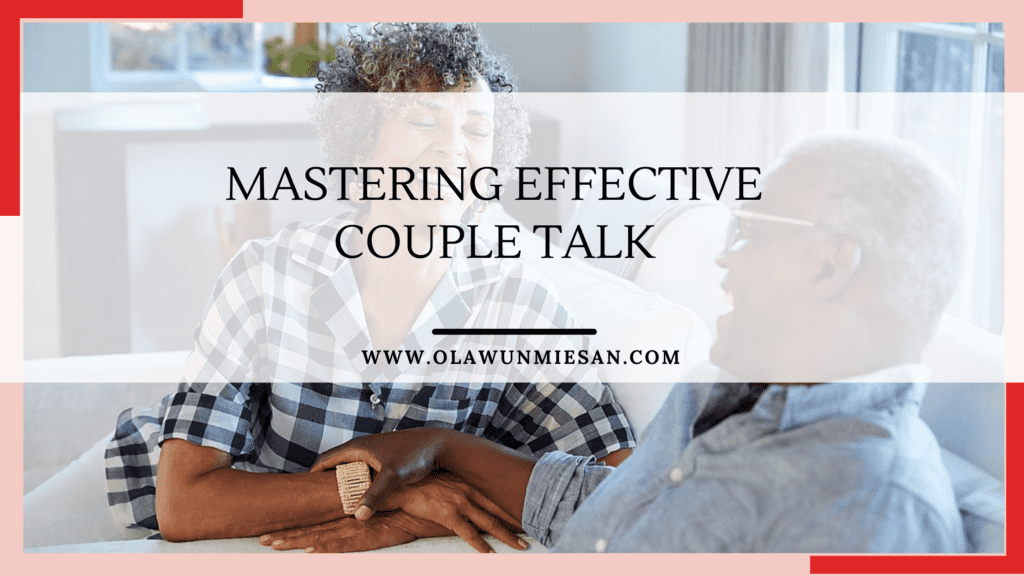In relationships, communication challenges are common. That simple “how was your day?” can sometimes erupt into verbal meltdowns of defensiveness, blame games, and silent treatment.
Mastering effective couple talk isn’t about Olympic-level silence or mind-reading; it’s about ditching communication pitfalls for enjoyable conversations.
Let’s tackle some of these communication roadblocks:
Defensiveness: Fortress, No More!
Imagine throwing a ball to your partner, only to have it thrown back like a spiked grenade. That’s defensiveness—the knee-jerk reaction to feeling attacked and immediately justifying your actions or thoughts. It often masks vulnerability and stems from insecurity or past hurt.
This behavior shuts down healthy dialogue, as any attempt at addressing an issue gets sidetracked by justifications and counter-accusations. It creates distance and prevents true understanding.
How to tackle it: Take a breath, ditch the armor, and listen. Maybe there’s truth in their words, even if it stings. Acknowledge their feelings (“I understand you’re upset…”) before explaining your perspective. Teamwork, not combat, is the key to resolving conflict.
The Blame Game
This one starts with the best intentions, often fueled by hurt feelings or unmet needs. But in the heat of the moment, accusations and finger-pointing only build walls and exacerbate tension.
Instead, try switching to “I” statements. By owning your feelings without blaming your partner, you open the door to a more constructive dialogue.
For example, instead of saying, “You never listen to me!” try, “I feel frustrated when I don’t feel heard.” This shift encourages understanding and collaboration rather than fueling defensiveness.
The Silent Treatment
Sometimes, silence feels like the only safe option. But shutting down during conflict or in response to disappointment creates an emotional vacuum that can be even more damaging than an argument.
Remember, healthy communication thrives on open expression. If you need space, communicate that. A simple “I need some time to process this” can bridge the gap and keep the dialogue open.
Passive-Aggression
Passive aggression is a sneaky way of expressing anger or disappointment through indirect tactics like sarcasm, sulking, leaving dirty dishes as a “hint,” or making cryptic pronouncements. It often stems from fear of confrontation or difficulty expressing needs assertively.
But guess what? Sneaky jabs erode trust and create confusion. It breeds resentment and can lead to emotional withdrawal or explosive outbursts.
What to do: Speak your truth! Use “I” statements (“I feel frustrated when…”) to express your needs clearly and directly. Open communication builds trust and strengthens your bond.
Now, let’s equip ourselves with some communication tools for building a stronger relationship:
Active Listening: Be More Than Just Ears
Active listening isn’t just passively absorbing information; it’s actively engaging with your partner’s world. Put down your phone, make eye contact, and lean in. Ask clarifying questions, summarize their points, and use phrases like “I understand what you’re saying” or “That sounds frustrating.”
This shows you’re not just waiting for your turn to speak but genuinely trying to connect with their thoughts and feelings.
Assertive Expression: Speak Your Truth, With Kindness
Expressing your needs doesn’t mean throwing verbal grenades. “I feel…” statements, owning your feelings without blame, are your new friends. Be clear, be direct, but be respectful. Remember, you’re on the same team, not opposing sides in a courtroom drama.
Conflict Navigation
Disagreements happen, even in the loveliest of couples. The key is to navigate them constructively. Focus on the issue, not the person. Use “we” statements (“How can we work through this together?”) to emphasize collaboration.
And remember, fair play is key—listen to their perspective, be willing to compromise, and focus on finding solutions, not winners and losers.
Mastering effective couple talk isn’t about winning arguments or having picture-perfect communication. It’s about showing up, listening with an open heart, and striving to understand each other. So, ditch the communication landmines, grab your tools of understanding, and build a relationship where conversation flows like a babbling brook, not a volcanic eruption.

